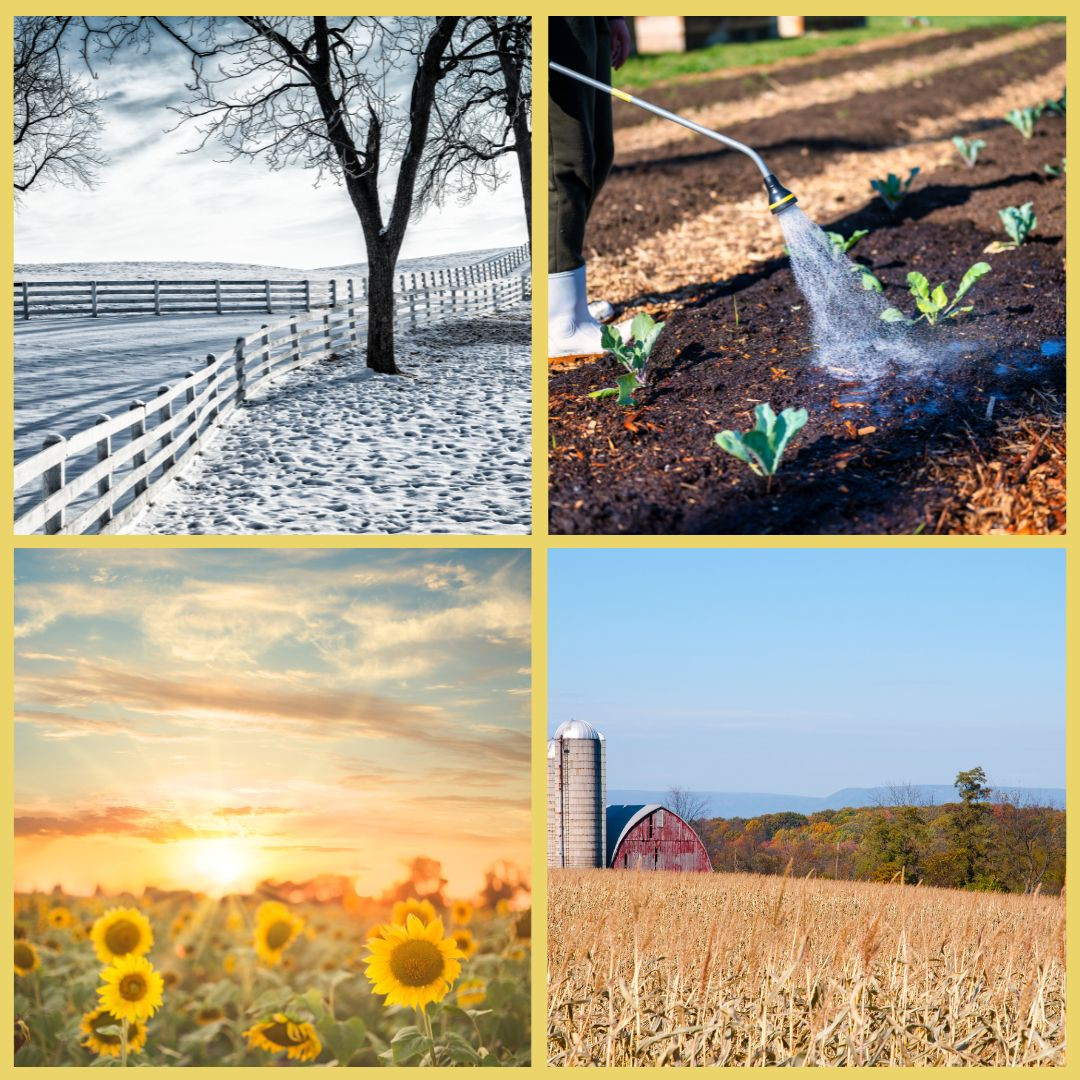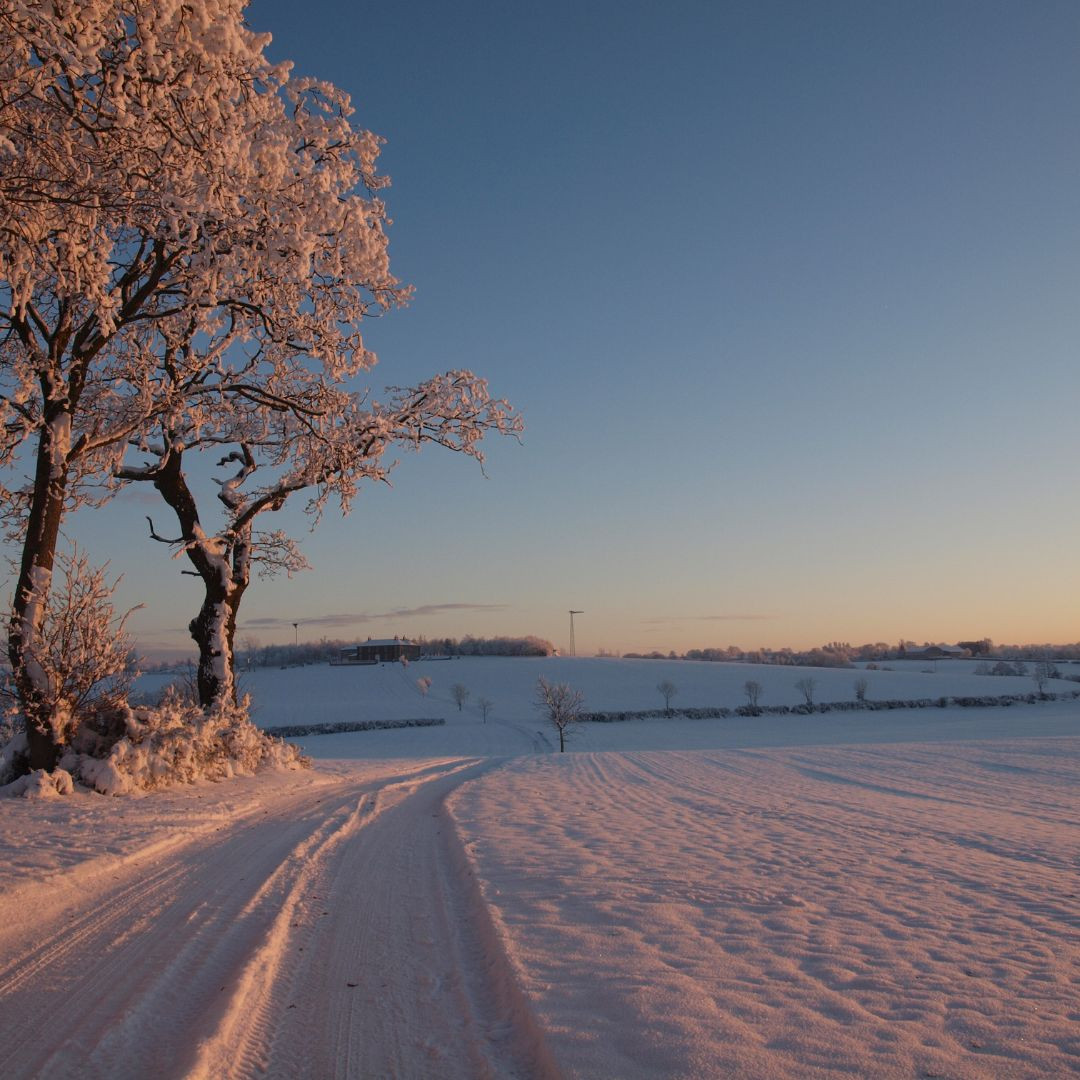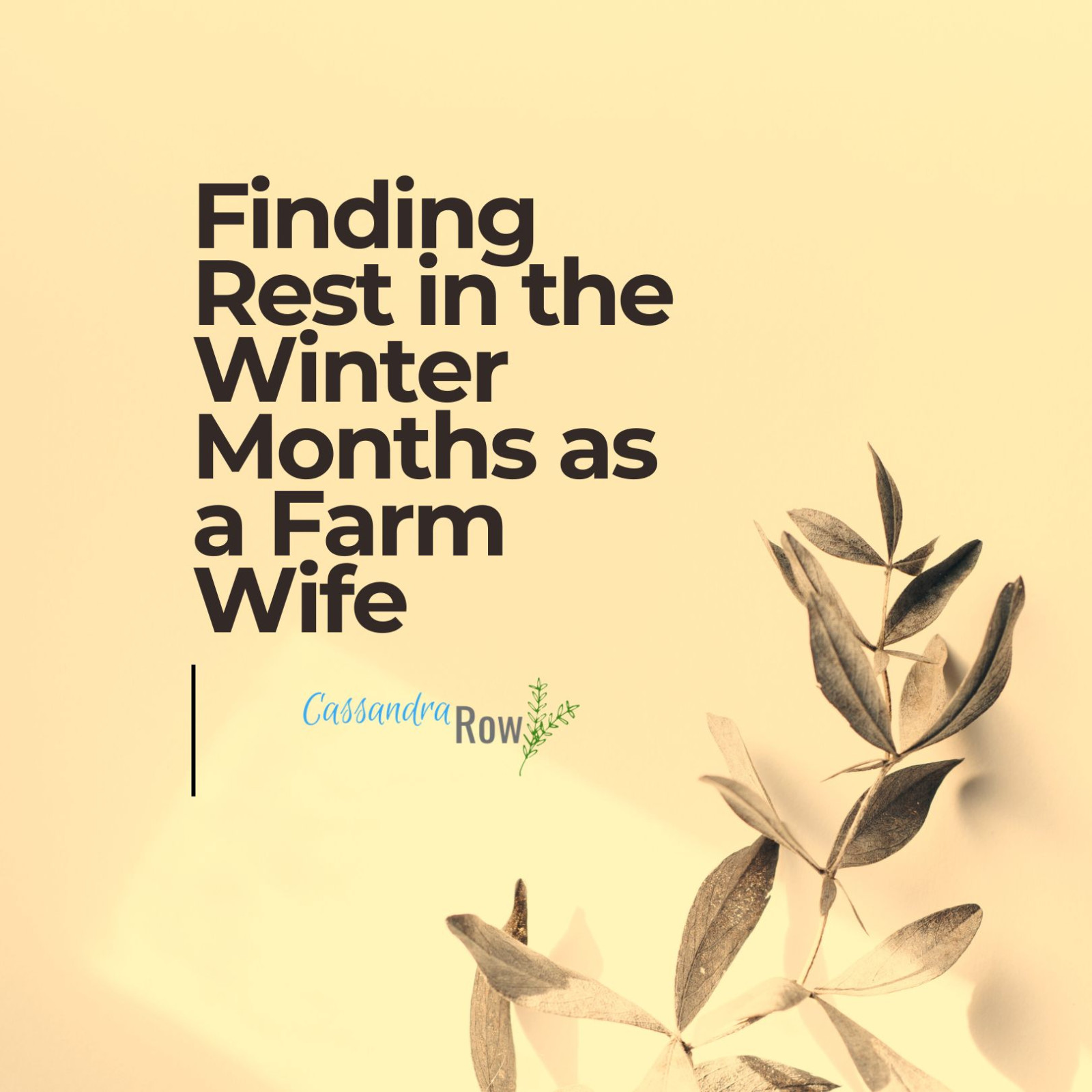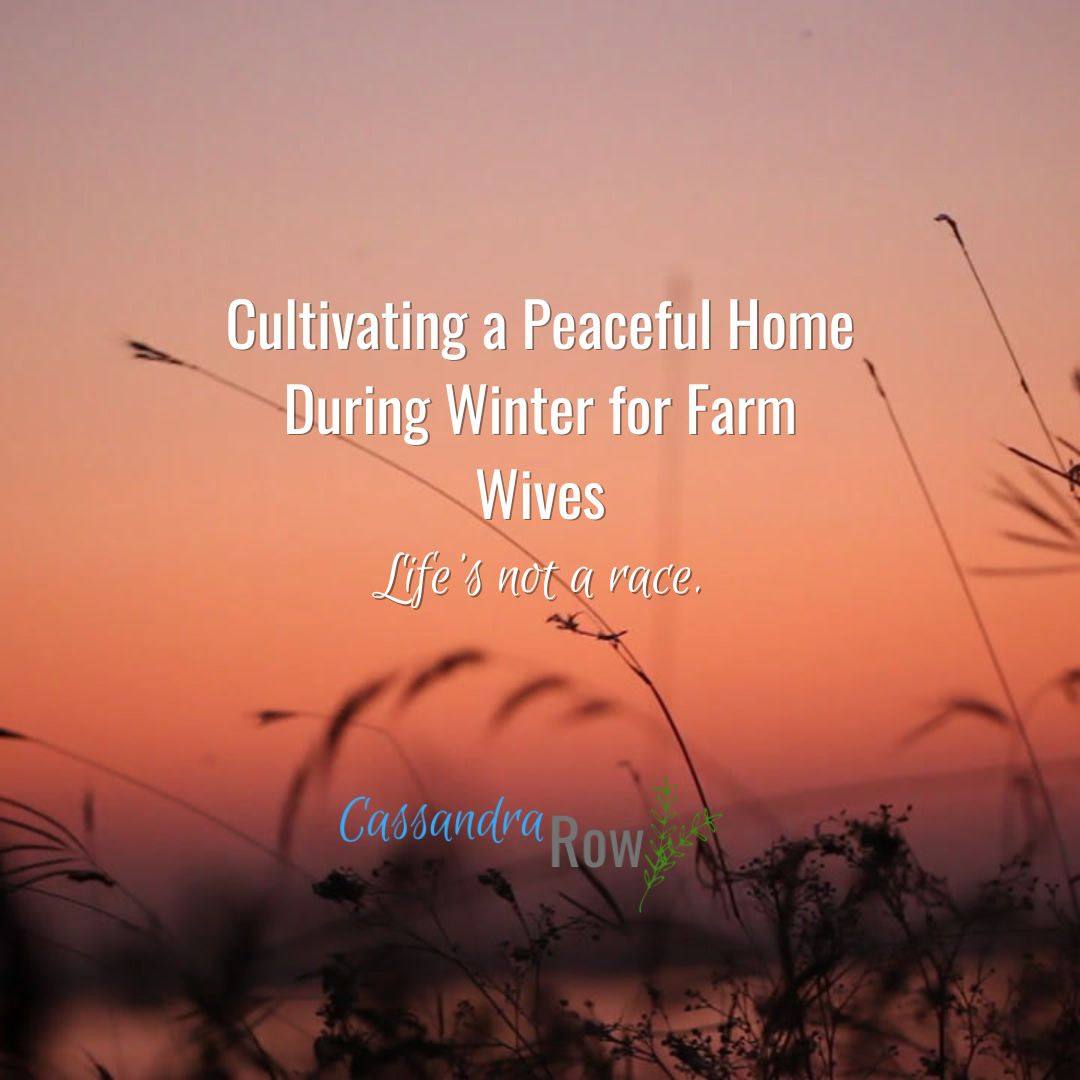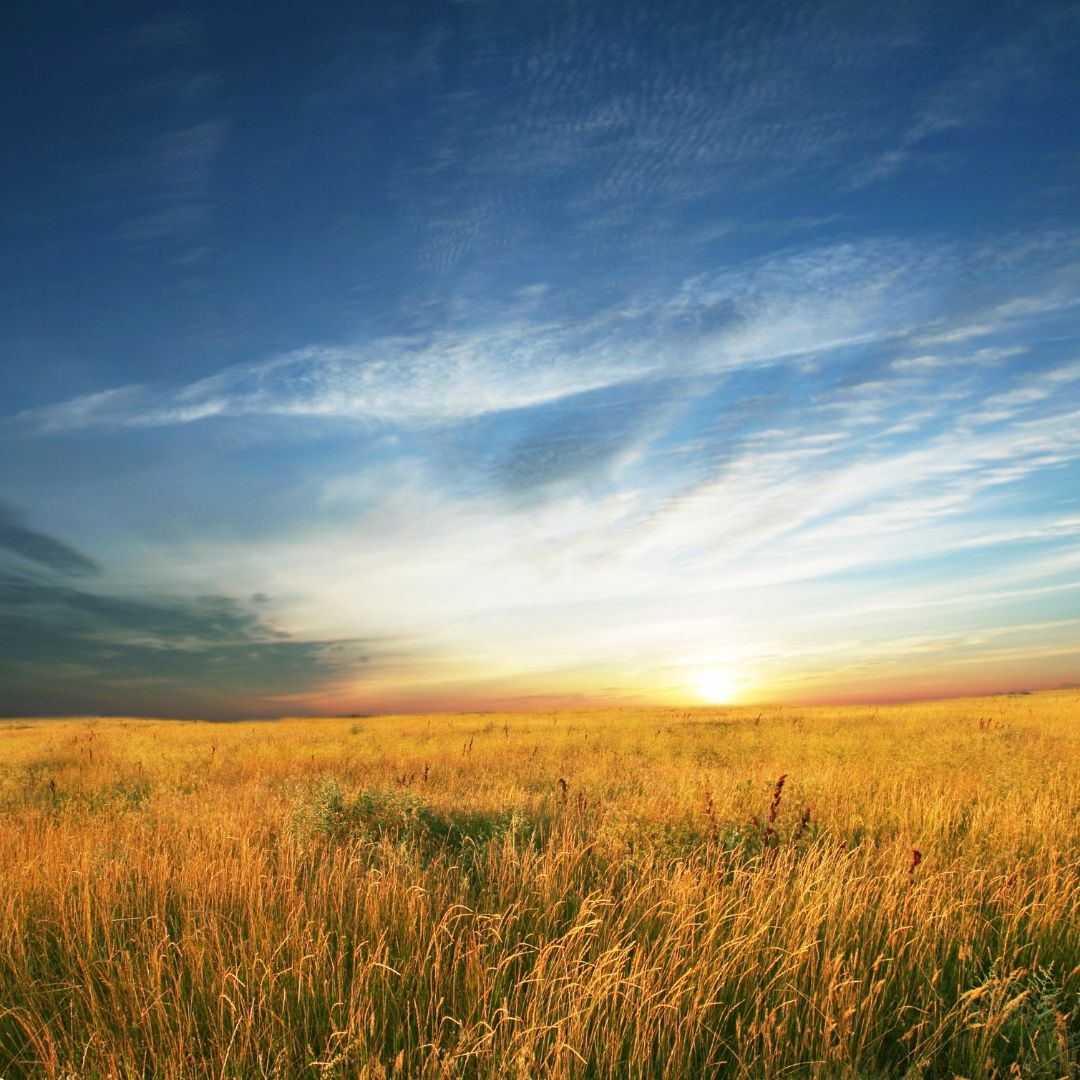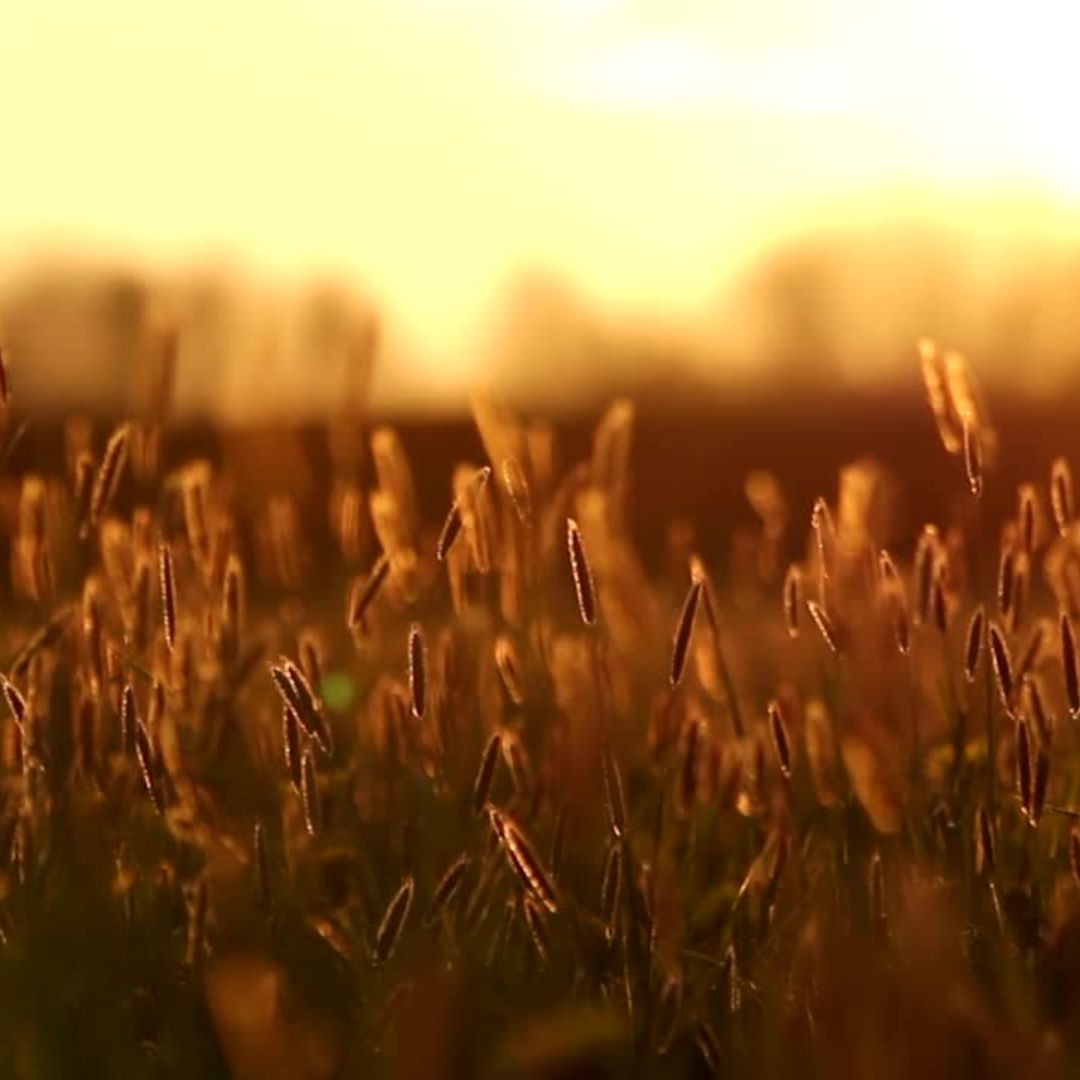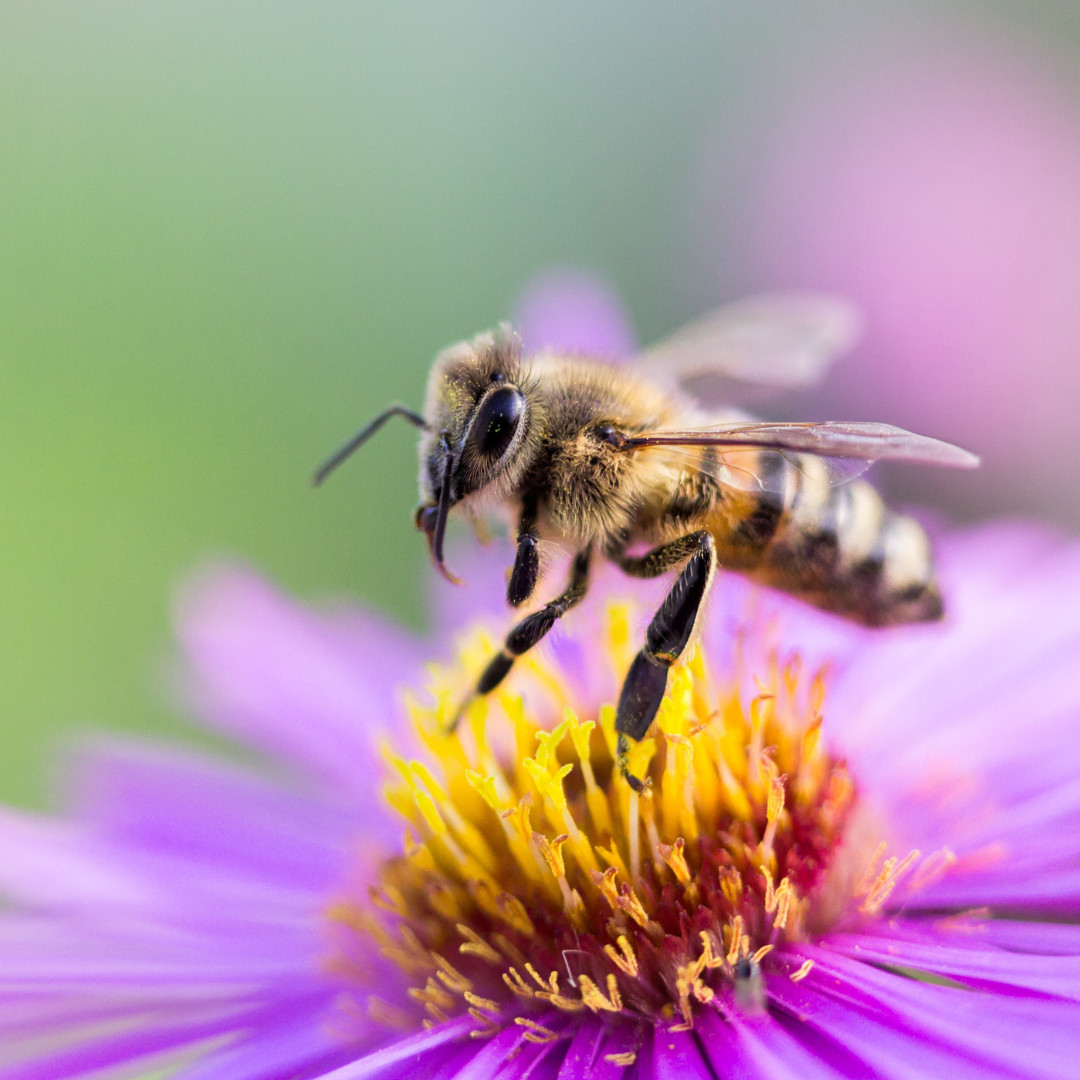
This post may contain affiliate links, which means that I may receive a commission if you make a purchase using these links, with NO additional cost to you.
At some point in your journey growing your own food, many people get bees. Why?!? Because bees are another livestock (like chickens) that can be kept no matter where you live, city or country. Bees also help your garden with pollination, helping to boost your garden crop and giving you honey. There are a few common problems that beginner beekeepers will often have. More on advanced problems later.
First when you are considering getting bees, find a local beekeeper group or individual who can help you when needed. Google is helpful, but nothing beats a person in person to help you go through and inspect your hive at least once. They are also invaluable when you do have problems and need to trouble shoot. I have 3 local beekeepers who help me and mentor me as I learn and grow.
The smoker problem. You can’t keep the smoker smoking. Me either honestly. I get distracted with the bees and forget to keep puffing the billow. I don’t’ even take it out to the hives anymore. Here’s my best advice. Go slow and control your breath. Yes, bees sting. Yes, they hurt even through the suit. But by using slow movements, and continuing to breath, the bees remain less aggressive.
By continuing to breathe slowly, you don’t emit as much CO2. Bees pick up on the CO2 and will become more aggressive. Sudden movements (like dropping a frame) startle the bees and they become aggressive to defend their hive. Sometimes hives have a bad day. My #1 hive this past weekend was in a bad mood and very aggressive (not normal for them). I moved slowly, breathed slowly, and they still were out to sting. I opened the hive and walked away for a bit. Usually, they will calm down after this and I can continue inspecting the hive. Not that day. I checked the frames from the top and found one with brood instead of honey. The pattern looked good, and I called the inspection good for the week. I only did this because I had just checked the hive thoroughly the week before and saw the queen along with a good brood pattern and low mite count. If I needed to inspect frame by frame again, I would probably go get the smoker and try to calm them that way.
If this hive continues to be aggressive I will requeen them. Why? Because all bees go back to the queen in the hive. Historically this hive is usually calm and easy to work, so that is not my first step.
Missing queen. As a beginner beekeeper, finding the queen can be difficult. This is where having an experienced beekeeper to go through the hive with you can help. Then mark the queen so she’s easier to find later. When purchasing a queen often they will mark them for you. What do you do when you can’t find the queen in the hive?
First look at the brood. Are there eggs? Are the eggs in the middle of the cells or are there multiple eggs in a cell? How is the pattern? Are the eggs grouped or all over the frames? This is hands down my biggest clue to if the queen is still present for a beginner. If there are eggs and larvae of varying ages, the queen is around somewhere. Keep checking weekly and keep checking the brood pattern.
True story, I took me over a month before I saw and was able to mark the queen in my #11 hive this year. This was a hive that I have had multiple problems with keeping a queen. But I stopped adding brood from the #1 hive when I started noticing eggs in the brood frames. The eggs were in the middle most of the time and only 1 egg per cell. This told me the queen was around, but very good at hiding. If there were multiple eggs per cell or the pattern was off, or eggs not centered, I would have suspected a worker bee laying.
Beekeeping is fun and rewarding. Be sure to tap into resources and continue learning as you raise bees. You can never know it all beforehand. Just jump in and learn on the go.
A few of my favorite online resources
Two Bees in a Podcast by UF/IFAS Honey Bee Lab
Honey Bee Obscura Podcast with Kim Flottum & Tim Tew
Bob Binnie YouTube channel
As I've grown in my journey as an entrepreneur, mom, gardener, and livestock owner, I struggled to find a planner that met my needs and kept me organized. So, I MADE MY OWN. You can look at it on the link below and buy it on amazon below.
Don't want the whole calendar part? I got you! I pulled the gardening and animal care pages out and put them in a book all their own.
Wanting a community to lean into? Join the FREE Helping Your Family Homestead for Food group! This community is for the Mommas, looking to stay home and raise their kids, but unsure how to keep everyone fed and make ends meet. I share tips from my journey from the office to half the income and feeding my family from home, while maintaining good nourishing food. Tips include gardening, bulk buying, caning/preserving, livestock, homesteading, and home remedies. Your family is precious, and this group is to help you gain the knowledge and tools to keep your family well and not reliant on outside professionals. Remedies and tips are easy and simple for the busy momma, time is precious after all, including pregnancy, birth, young kids, and illness. Trust your Momma gut again! This community offers the resources + community you need to help get started on your journey and prepare for whatever future you envision.
Starting to garden doesn't have to be hard! I gathered all the tips I've learned over my gardening learning curve and made them into a simple course to jump start your gardening your life.
Supporting Your Family Naturally from the Inside Out community!! This community is for Mommas, looking to Support Your Family from Nature for Wellness. Tips range from nutrition, herbals, detoxing, natural cleaning, and essential oils. Basically, all the things I’ve learned slowly over the past 5+ years of my journey. We have moved off Facebook, to better serve our community and be able to discuss openly options for providing for your family in the best way possible.
Join the FREE Community
Join the FREE Community
I've had 3 very different pregnancies. After the first traumatic birth, I learned better and how to care for my body naturally and prevent common pregnancy and birth problems before they arise. This quick course will get you the tools you need to have a naturally healthy pregnancy, labor, and delivery. My first pregnancy I had a normal western medicine all the things pregnancy. My second? I flipped to completely natural, no medicine. Bonus: Preventing Preeclampsia Without the Aspirin & Healing from Birth Trauma
Click here to get the stories straight to your email:
For more on wellness tips click here:
For more on homesteading on your budget click here:
For more simple DIY updates click here:
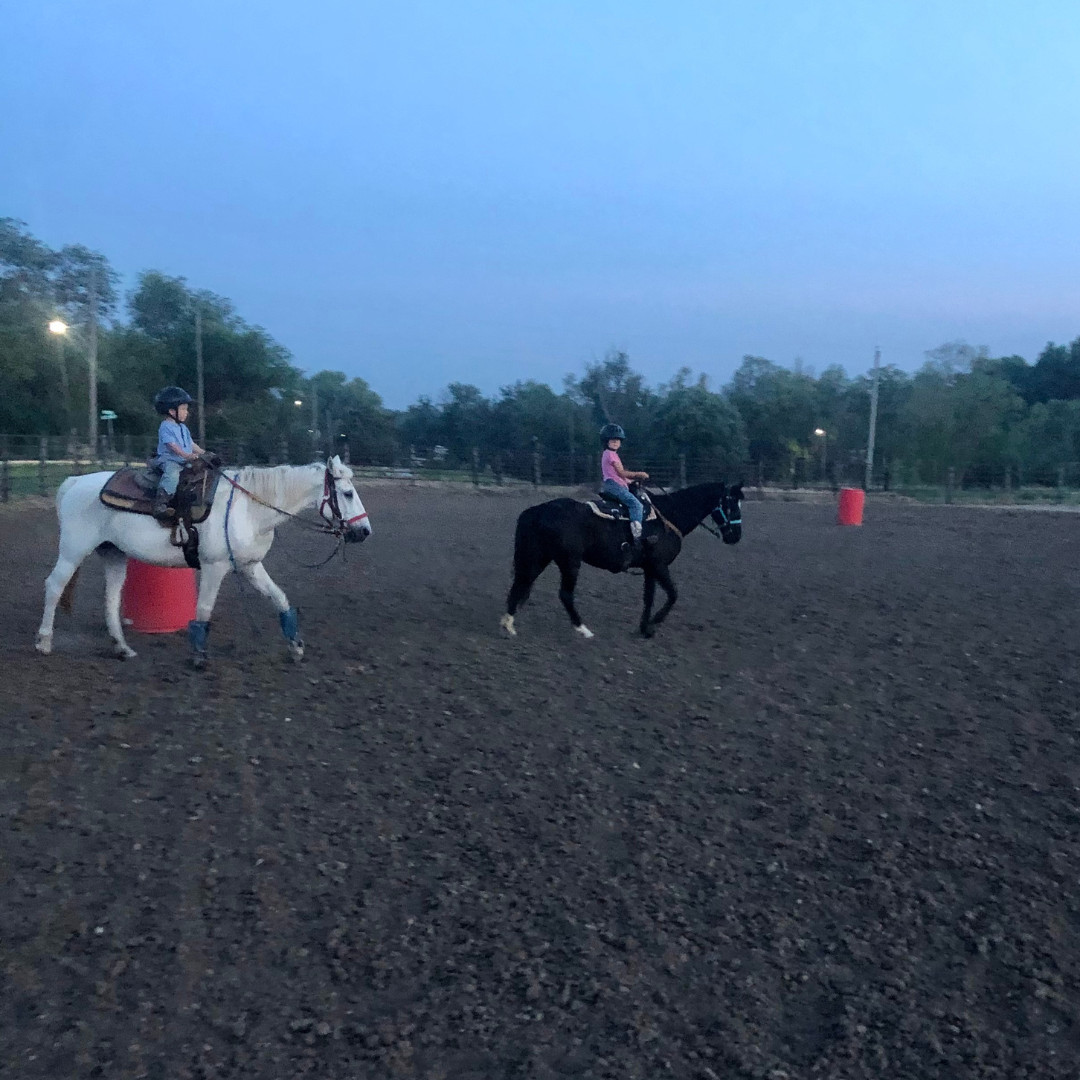
This post may contain affiliate links, which means that I may receive a commission if you make a purchase using these links, with NO additional cost to you.
Horses can be fantastic partners on the farmstead. They can also be a fun hobby. As you select a horse, there are a few things to keep in mind. Are you looking for a working partner or a hobby? Have you paid attention to the resources you have and if they match up with a horse? Are you willing to commit to a horse?
First keep in mind horses are big and powerful animals. Horses demands respect and caution, NOT fear. Yes, you can get a pony or miniature horses if they fit your goals. Comfortable handling horses doesn’t count as only ever trail riding on at a camp or retreat center. Those horses are very well trained and if they are having an off day, they don’t go out on the trail. If you are uncomfortable or inexperienced handling large animals, please seek out a local person who is confident in handling horses to teach you the basics so you can have a successful horse adventure.
Now that you have some experience and some trusted help to guide you if needed, think about your goals for your horse. What do you want to do with them? As a trail riding hobby with friends, working/moving cattle, driving/pulling carts/wagons? A little bit of everything? Knowing how you will use your horse will help you determine where to start looking for your horse. Horses are trained in many different disciplines: trail, ranch, driving, jumping, and even show disciplines: pleasure, reining, etc.
For most disciplines, breed doesn’t really matter. Yes, some breeds are more selected for certain tasks historically, but they are adaptable especially if you’re not in the professional world. For example, Arabians were bred to be long distant runners in a dry environment, with a courageous heart. Yet, I have an Arabian I uses as my all round go to horse, trail riding, fun runs, moving cows and can even pull a small cart. My sister has an ex-racehorse that she turned barrel horse and now trail rides.
If you are looking at doing a lot of heavy wagon or cart pulling, I do recommend going with a draft breed (yes you can also ride them too). Draft breeds are big and strong selected for pulling strength. Common breeds for draft are the Clydesdale, Belgian, or Gypsy.
Ultimately when you select a horse, try it out first! Groom it, ride it, how do you communicate? Does the horse listen to you or fight you? If it is fighting you now, it will be more at home. Whatever you do as a beginner, do not select a horse based on color, papers, bloodlines, breed, or price. More expensive is not always better, neither is cheaper. Select carefully and you will have a willing and fun partner no matter what you decide to do.
As I've grown in my journey as an entrepreneur, mom, gardener, and livestock owner, I struggled to find a planner that met my needs and kept me organized. So, I MADE MY OWN. You can take a look at it on the link below and buy it on amazon below.
Don't want the whole calendar part? I got you! I pulled the gardening and animal care pages out and put them in a book all their own.
Wanting a community to lean into? Join the FREE Helping Your Family Homestead for Food group! This community is for the Mommas, looking to stay home and raise their kids, but unsure how to keep everyone fed and make ends meet. I share tips from my journey from the office, to half the income and feeding my family from home, while maintaining good nourishing food. Tips include: gardening, bulk buying, caning,/preserving, livestock, homesteading, and home remedies. Your family is precious and this group is to help you gain the knowledge and tools to keep your family well and not reliant on outside professionals. Remedies and tips are easy and simple for the busy momma, time is precious after all, including pregnancy, birth, young kids, and illness. Trust your Momma gut again! This community offers the resources + community you need to help get started on your journey and prepare for whatever future you envision.
Starting to garden doesn't have to be hard! I gathered all the tips I've learned over my gardening learning curve and made them into a simple course to jump start your gardening your life.
Supporting Your Family Naturally From the Inside Out community!! This community is for the Mommas, looking to Support Your Family from Nature for Wellness. Tips range from nutrition, herbals, detoxing, natural cleaning, and essential oils. Basically all the things I’ve learned slowly over the past 5+ years if my journey. We have moved off Facebook, so to better serve our community and be able to discuss openly option for providing for your family in the best way possible.
Join the FREE Community
Join the FREE Community
I've had 3 very different pregnancies. After the first traumatic birth, I learned better and how to care for my body naturally and prevent common pregnancy and birth problems before they arise. This quick course will get you the tools you need to have a naturally healthy pregnancy, labor, and delivery. My first pregnancy I had a normal western medicine all the things pregnancy. My second? I flipped to completely natural, no medicine. Bonus: Preventing Preeclampsia Without the Aspirin & Healing from Birth Trauma
Click here to get the stories straight to your email:
For more on wellness tips click here:
For more on homesteading on your budget click here:
For more simple DIY updates click here:
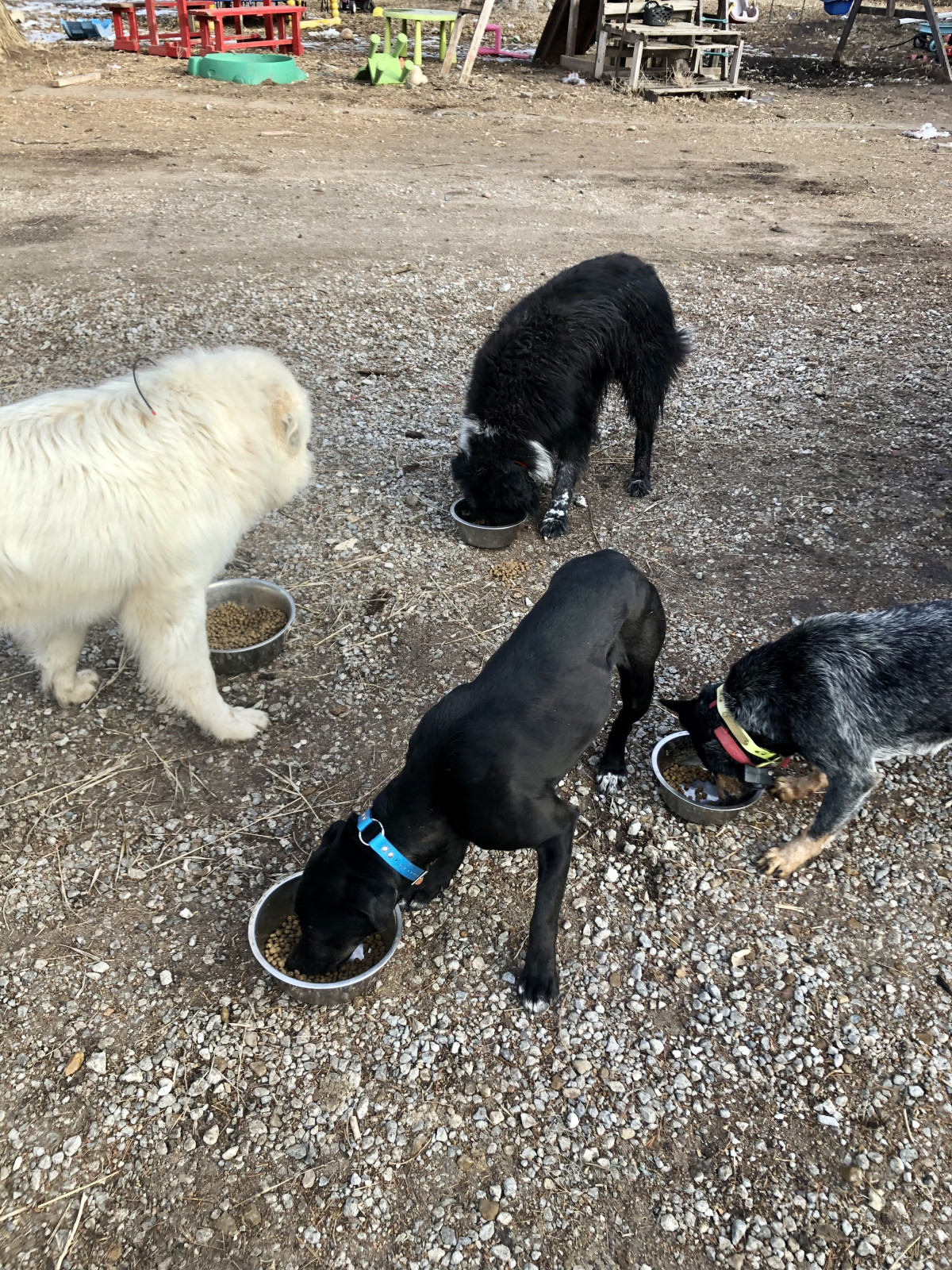
This post may contain affiliate links, which means that I may receive a commission if you make a purchase using these links, with NO additional cost to you.
What is a farm without a dog? It’s like an unspoken rule that if you have a farm or homestead, a dog is needed to complete your home. But how do you find the right one? The glorious thing about dogs is they are wide open with hundreds of choices. There are a few things to consider, but it is truly simple to choose.
First are you looking for a companion, or a dog who will have a job working on the homestead with you? Dogs have been selected over time for different jobs or to fit niches. Jobs on the homestead that dogs can have include Livestock Guardian (LGD) and Herding. Working dogs can also make great companions too.
If you are looking for a dog to fit one of those jobs, you will want to select a breed in that category, FROM actively working parents. This is key, because a LGD raised around livestock with their parents have a head start on their training, as the parents will start training them as soon as they can move. Key breeds to consider here are Anatolian, Pyrenees, and mixes.
If you are looking for a herding partner, check out the herding breeds, and again make sure they are from ACTIVELY WORKING PARENTS. The instinct in puppies from working parents is stronger and therefore easier to train when they come from working parents. Again, they also watch and learn. Popular breeds are the Collie, Border Collie, Australian Shephard, and Red/Blue Heelers.
If you are simply looking for a companion on your farm, you really have no limits. Even a companion dog hanging around will still tend to keep predators at bay as they establish their territory around your home. They may not be strong or driven enough to take on a coyote head on though.
Keep in mind when selecting a companion whether they will be mostly outside or inside and how much brushing/grooming you want to do. When selecting a companion dog, the best way is honestly to let them select you. Find a shelter and start hanging out with the dogs. One will kind of attach to you a bit more than others and the connection is off.
In summary, when choosing a dog for your home, keep in mind if they will be working or companion, mainly hanging out inside or outside. And above all if you can, let them choose you.
As I've grown in my journey as an entrepreneur, mom, gardener, and livestock owner, I struggled to find a planner that met my needs and kept me organized. So, I MADE MY OWN. You can take a look at it on the link below and buy it on amazon below.
Don't want the whole calendar part? I got you! I pulled the gardening and animal care pages out and put them in a book all their own.
Wanting a community to lean into? Join the FREE Helping Your Family Homestead for Food group! This community is for the Mommas, looking to stay home and raise their kids, but unsure how to keep everyone fed and make ends meet. I share tips from my journey from the office, to half the income and feeding my family from home, while maintaining good nourishing food. Tips include: gardening, bulk buying, caning,/preserving, livestock, homesteading, and home remedies. Your family is precious and this group is to help you gain the knowledge and tools to keep your family well and not reliant on outside professionals. Remedies and tips are easy and simple for the busy momma, time is precious after all, including pregnancy, birth, young kids, and illness. Trust your Momma gut again! This community offers the resources + community you need to help get started on your journey and prepare for whatever future you envision.
Starting to garden doesn't have to be hard! I gathered all the tips I've learned over my gardening learning curve and made them into a simple course to jump start your gardening your life.
Supporting Your Family Naturally From the Inside Out community!! This community is for the Mommas, looking to Support Your Family from Nature for Wellness. Tips range from nutrition, herbals, detoxing, natural cleaning, and essential oils. Basically all the things I’ve learned slowly over the past 5+ years if my journey. We have moved off Facebook, so to better serve our community and be able to discuss openly option for providing for your family in the best way possible.
Join the FREE Community
Join the FREE Community
I've had 3 very different pregnancies. After the first traumatic birth, I learned better and how to care for my body naturally and prevent common pregnancy and birth problems before they arise. This quick course will get you the tools you need to have a naturally healthy pregnancy, labor, and delivery. My first pregnancy I had a normal western medicine all the things pregnancy. My second? I flipped to completely natural, no medicine. Bonus: Preventing Preeclampsia Without the Aspirin & Healing from Birth Trauma
Click here to get the stories straight to your email:
For more on wellness tips click here:
For more on homesteading on your budget click here:
For more simple DIY updates click here:
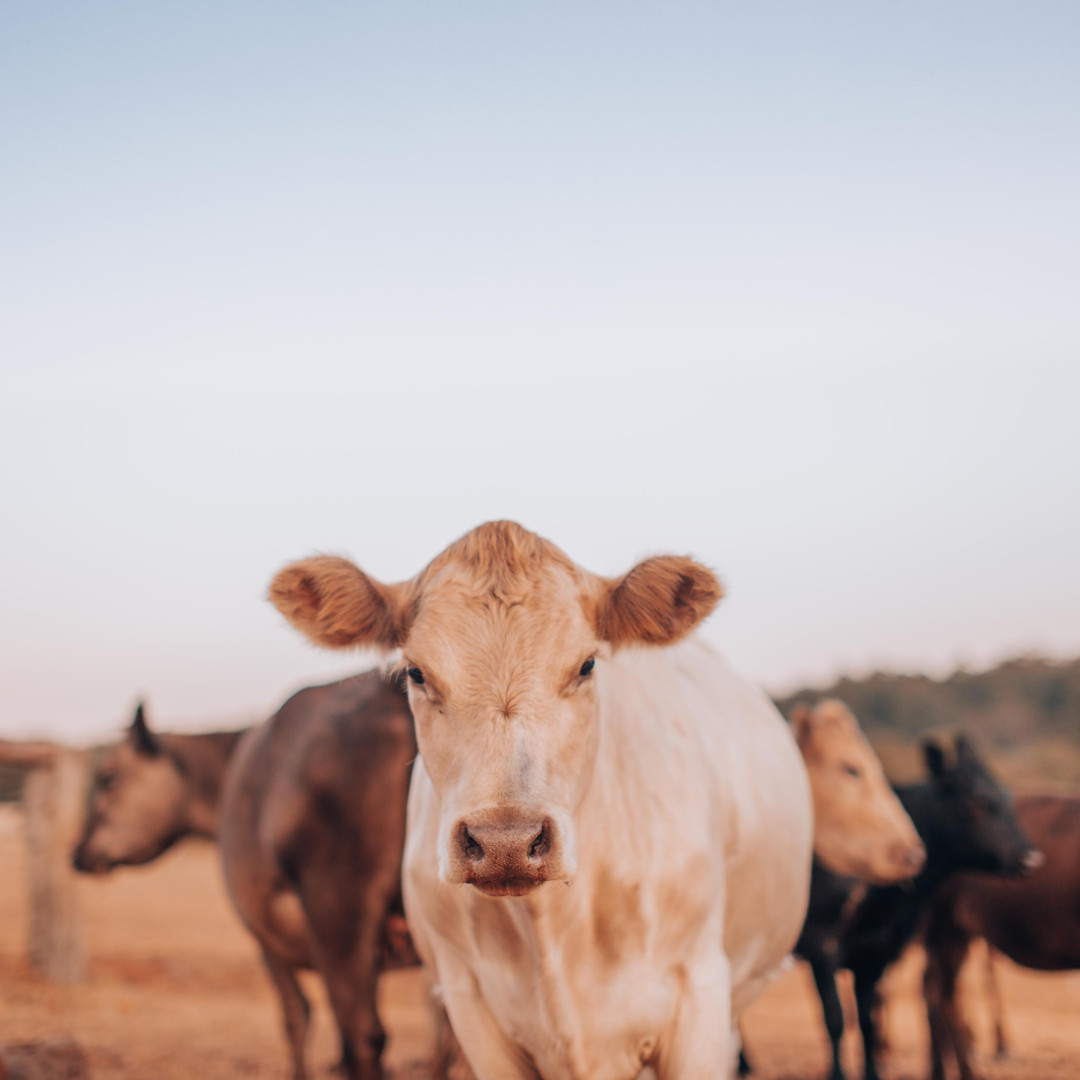
This post may contain affiliate links, which means that I may receive a commission if you make a purchase using these links, with NO additional cost to you.
A cow may not be the first animal to be added to your homestead, but at some point, many do. Cows bring so much to the homestead, it’s hard to not add one eventually. There are a few major differences in breeds to consider when selecting your cows. The biggest difference to consider is your desire for beef or milk. Environment is another factor to consider.
As with any other domesticated animal, humans have selected cattle primarily for beef or milk traits. There are a few breeds that still have both traits and are considered dual purpose.
In general beef breeds are good at growing muscle quickly but not necessarily good at producing extra milk. They produce enough for their calf, but that’s about it. The most popular breeds are Angus, Limousin, Herford, Simmental, Gelbvieh, and Charolais.
Cows considered dairy breeds have been selected for producing milk. They tend to be a little slower growing but can still be used for beef. Popular breeds for milking cows are the Holstein, Brown Swiss, Jersey, and Guernsey. To get milk, the cow must have a calf, so many homesteaders will grow the calf for their own beef, knowing it will take a bit longer.
The few dual purpose breeds still have variations with in the breed. Make sure you check when purchasing how the animal has been selected. Popular dual purpose breeds are the Shorthorn and Dexter.
Another factor to consider is your environment. If you live in a hot and dry environment, you want to make sure you have a cow that can handle the environment. There are breeds that are better suited for heat like the Brahman. There are some breeds that are better suited for poor range as well, like the Corrientes and Longhorn.
Having a cow on the homestead is very rewarding, either a beef or dairy cow. They bring a lot to the homestead for food for your family. Happy selecting!
As I've grown in my journey as an entrepreneur, mom, gardener, and livestock owner, I struggled to find a planner that met my needs and kept me organized. So, I MADE MY OWN. You can take a look at it on the link below and buy it on amazon below.
Don't want the whole calendar part? I got you! I pulled the gardening and animal care pages out and put them in a book all their own.
Wanting a community to lean into? Join the FREE Helping Your Family Homestead for Food group! This community is for the Mommas, looking to stay home and raise their kids, but unsure how to keep everyone fed and make ends meet. I share tips from my journey from the office, to half the income and feeding my family from home, while maintaining good nourishing food. Tips include: gardening, bulk buying, caning,/preserving, livestock, homesteading, and home remedies. Your family is precious and this group is to help you gain the knowledge and tools to keep your family well and not reliant on outside professionals. Remedies and tips are easy and simple for the busy momma, time is precious after all, including pregnancy, birth, young kids, and illness. Trust your Momma gut again! This community offers the resources + community you need to help get started on your journey and prepare for whatever future you envision.
Starting to garden doesn't have to be hard! I gathered all the tips I've learned over my gardening learning curve and made them into a simple course to jump start your gardening your life.
Supporting Your Family Naturally From the Inside Out community!! This community is for the Mommas, looking to Support Your Family from Nature for Wellness. Tips range from nutrition, herbals, detoxing, natural cleaning, and essential oils. Basically all the things I’ve learned slowly over the past 5+ years if my journey. We have moved off Facebook, so to better serve our community and be able to discuss openly option for providing for your family in the best way possible.
Join the FREE Community
Join the FREE Community
I've had 3 very different pregnancies. After the first traumatic birth, I learned better and how to care for my body naturally and prevent common pregnancy and birth problems before they arise. This quick course will get you the tools you need to have a naturally healthy pregnancy, labor, and delivery. My first pregnancy I had a normal western medicine all the things pregnancy. My second? I flipped to completely natural, no medicine. Bonus: Preventing Preeclampsia Without the Aspirin & Healing from Birth Trauma
Click here to get the stories straight to your email:
For more on wellness tips click here:
For more on homesteading on your budget click here:
For more simple DIY updates click here:
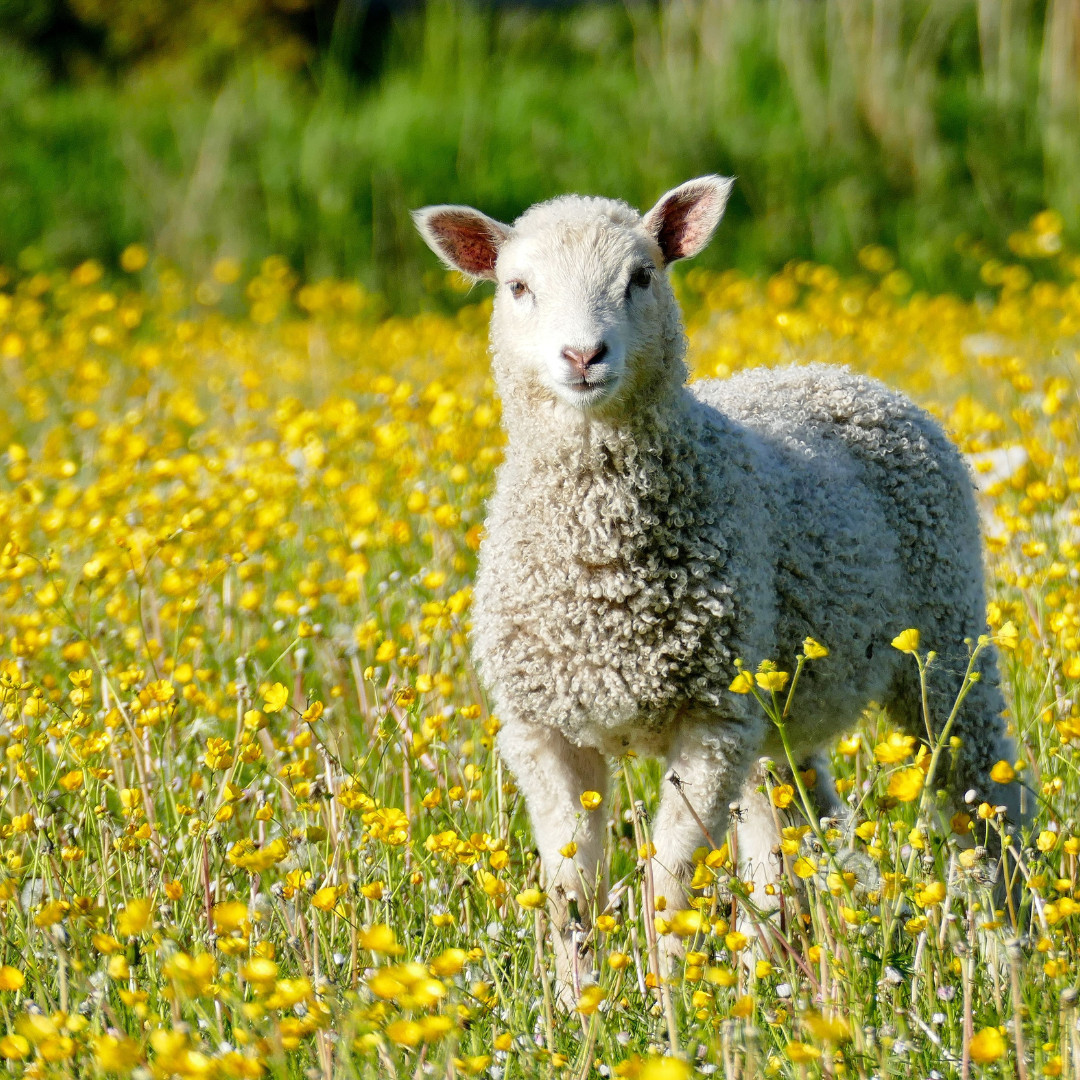
This post may contain affiliate links, which means that I may receive a commission if you make a purchase using these links, with NO additional cost to you.
When selecting a sheep breed for your homestead, it is important to consider what you want sheep for. Are you looking for them to fill your freezer or cloth your family, or both? Keep reading for the favorite breeds for each category.
First, keep in mind that sheep are browsers. This means they are going to naturally select the broadleaf weeds above the grass and woody plants. If you have a weedy area, sheep will love it.
Meat breeds of sheep are sheep that do not have high quality wool. They still grow wool, but the wool tends to be coarse and not soft. These breeds are good at growing muscle and tend to be bigger boned. Popular breeds for this are the Suffolk (my personal favorite), Hampshire, Katahdin, and Doper. Suffolk and Hampshire will produce a bigger carcass. Katahdin and Doper breeds are smaller, but more popular because of their easy care and smaller frame. Katahdin’s are famous for their ability to shed their wool coat in the spring.
Wool breeds of sheep may not have the best growing meat, but have outstanding soft, and fine wool coats. The most popular breed for wool is the Merino. Other popular breeds are the Romanoff, Romney, Lincoln, and Leicester Longwool. These breeds will grow a long wool fleece every year and need sheered. That fleece will be soft and great for spinning and making cloths with.
Dual purpose breeds have a little bit of both categories. They may not be the best in either category, but they tend to have the best blend of both. Top breeds for dual purpose, are the Rambouillet, Dorset, and Corriedale. These breeds tend to grow a good amount of muscle, but still have a decently soft fleece.
Some breeds are more prone to multiple lambs, some are more resistant to parasites, some have a reputation for being smarter or more hardy, some more tolerant to heat or cold. Every breed has its perks and downfalls. It is important to research each breed to make sure they will match your environment and needs.
As I've grown in my journey as an entrepreneur, mom, gardener, and livestock owner, I struggled to find a planner that met my needs and kept me organized. So, I MADE MY OWN. You can take a look at it on the link blow and buy it on amazon below:
Don't want the whole calendar part? I got you! I pulled the gardening and animal care pages out and put them in a book all their own.
Wanting a community to lean into? Join the FREE Helping Your Family Homestead for Food group! This community is for the Mommas, looking to stay home and raise their kids, but unsure how to keep everyone fed and make ends meet. I share tips from my journey from the office, to half the income and feeding my family from home, while maintaining good nourishing food. Tips include: gardening, bulk buying, caning,/preserving, livestock, homesteading, and home remedies. Your family is precious and this group is to help you gain the knowledge and tools to keep your family well and not reliant on outside professionals. Remedies and tips are easy and simple for the busy momma, time is precious after all, including pregnancy, birth, young kids, and illness. Trust your Momma gut again! This community offers the resources + community you need to help get started on your journey and prepare for whatever future you envision.
Starting to garden doesn't have to be hard! I gathered all the tips I've learned over my gardening learning curve and made them into a simple course to jump start your gardening your life.
Supporting Your Family Naturally From the Inside Out community!! This community is for the Mommas, looking to Support Your Family from Nature for Wellness. Tips range from nutrition, herbals, detoxing, natural cleaning, and essential oils. Basically all the things I’ve learned slowly over the past 5+ years if my journey. We have moved off Facebook, so to better serve our community and be able to discuss openly option for providing for your family in the best way possible.
Join the FREE Community
Join the FREE Community
I've had 3 very different pregnancies. After the first traumatic birth, I learned better and how to care for my body naturally and prevent common pregnancy and birth problems before they arise. This quick course will get you the tools you need to have a naturally healthy pregnancy, labor, and delivery. My first pregnancy I had a normal western medicine all the things pregnancy. My second? I flipped to completely natural, no medicine. Bonus: Preventing Preeclampsia Without the Aspirin & Healing from Birth Trauma
Click here to get the stories straight to your email:
For more on wellness tips click here:
For more on homesteading on your budget click here:
For more simple DIY updates click here:
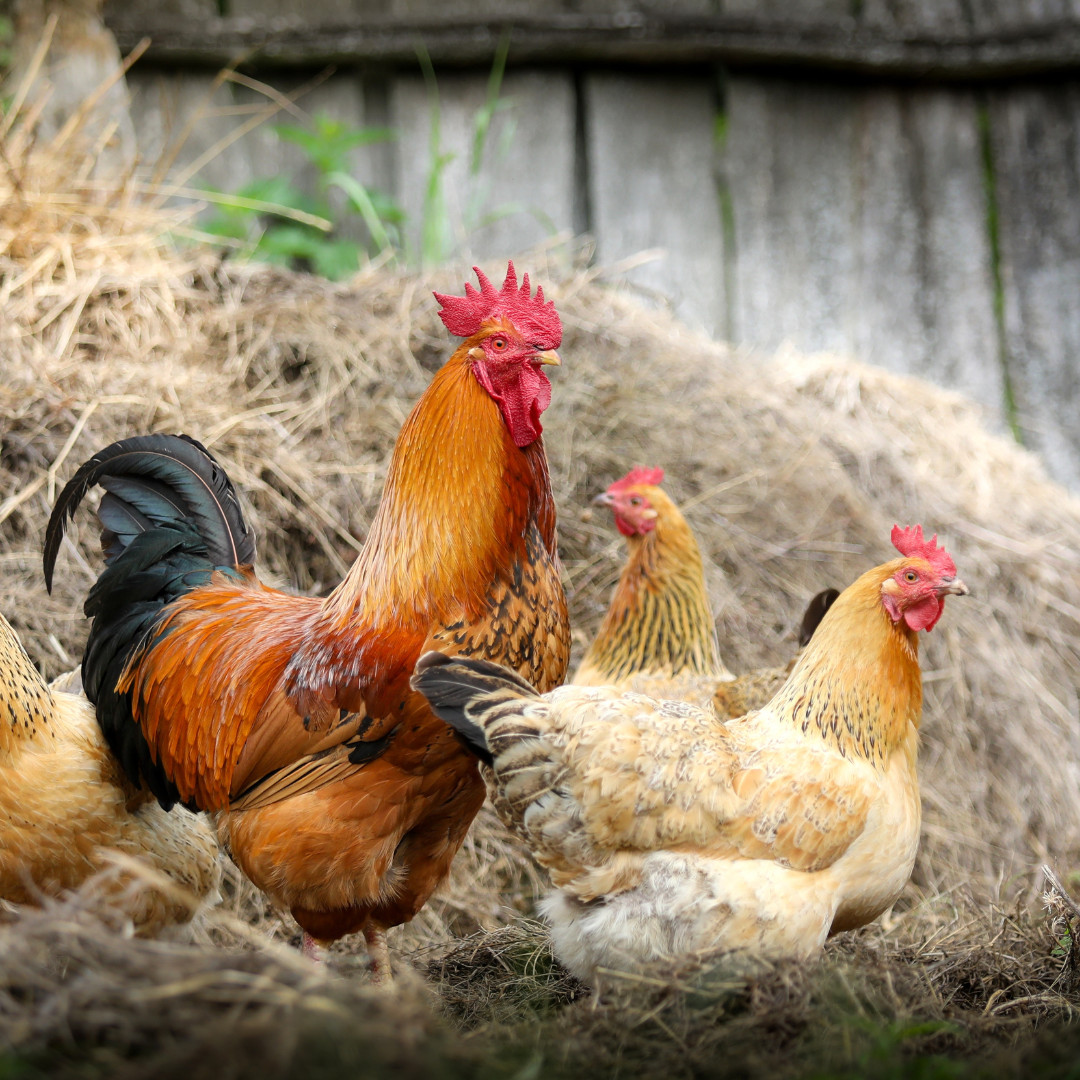
This post may contain affiliate links, which means that I may receive a commission if you make a purchase using these links, with NO additional cost to you.
Chickens are a forgiving livestock, however there are a few things to keep in mind when selecting the prefect chicken breed for your homestead. Some important things to consider are meat vs egg production, broody tendencies, and heat/cold tolerance. Below I’ll highlight some of each and the popular breeds within each category.
Meat or Egg production? Or both?
This is a big factor. Chicken breeds today have been selected for more meat producing genetics or egg production. There are a few breeds that fall into both categories, called dual purpose.
The most popular meat breed is the cochins. They are fast growers and fatten in about 8-10 weeks. 99% of the chicken raised commercially are the cochin breed. However, a breed with rising interest among homesteaders is the Freedom Rangers. They are more agile and smart than the Cochin but do take about 12-14 weeks to fatten.
Chickens that are selected for more egg production tend to lay heavy from about 6 months to 2 years, then they taper off, still laying, but not daily anymore. Popular breeds include Golden Comet, Sapphire Gem, ISA Browns, Australorps (egg record holders), Plymouth Rock, Wyandotte, Ameraucana, and Welsummer.
The Welsummer is a good year-round layer, even if they don’t lay the most eggs, and they handle heat and cold well. Australorps are the record holders, but don’t tend to like the heat. I do have one Australorp hen who insists on raising at least 1 clutch each year since turning 3. The Wyandotte is a good layer and also thrives in cold northern winters, but doesn’t like the extreme heat. They can survive, just may not lay well for you. They also don’t tend to go broody. The Ameraucana breed lays eggs from cream to bright blue color. They will slow down in the winter, but still lay eggs.
Breeds that are considered dual purpose are both good egg layers and can be good meat birds. These tend to not be the best in either category, but they are a happy middle if you want to raise all your own birds. Two of my favorite dual breeds are Buff Orpingtons and Sussex/Speckled Sussex. Both lay eggs well and are a bigger breed which would produce a decent amount of meat. Buff Orpingtons are said to have tendency to be broody which is a plus if you want a hen to raise chicks for you.
In general, heavy breeds tend to not like the heat as much and can slow laying. However, they also tend to tolerate the cold weather a little better. If you want to avoid broody hens, go with a breed that tends to not be broody. Overall, make sure to match your chickens to your environment and you will be happy with your chickens’ productions.
As I've grown in my journey as an entrepreneur, mom, gardener, and livestock owner, I struggled to find a planner that met my needs and kept me organized. So I MADE MY OWN. You can take a look at it on the link blow and buy it on amazon below
Don't want the whole calendar part? I got you! I pulled the gardening and animal care pages out and put them in a book all their own.
Wanting a community to lean into? Join the FREE Helping Your Family Homestead for Food group! This community is for the Mommas, looking to stay home and raise their kids, but unsure how to keep everyone fed and make ends meet. I share tips from my journey from the office, to half the income and feeding my family from home, while maintaining good nourishing food. Tips include: gardening, bulk buying, caning,/preserving, livestock, homesteading, and home remedies. Your family is precious and this group is to help you gain the knowledge and tools to keep your family well and not reliant on outside professionals. Remedies and tips are easy and simple for the busy momma, time is precious after all, including pregnancy, birth, young kids, and illness. Trust your Momma gut again! This community offers the resources + community you need to help get started on your journey and prepare for whatever future you envision.
Starting to garden doesn't have to be hard! I gathered all the tips I've learned over my gardening learning curve and made them into a simple course to jump start your gardening your life.
Supporting Your Family Naturally From the Inside Out community!! This community is for the Mommas, looking to Support Your Family from Nature for Wellness. Tips range from nutrition, herbals, detoxing, natural cleaning, and essential oils. Basically all the things I’ve learned slowly over the past 5+ years if my journey. We have moved off Facebook, so to better serve our community and be able to discuss openly option for providing for your family in the best way possible.
Join the FREE Community
Join the FREE Community
I've had 3 very different pregnancies. After the first traumatic birth, I learned better and how to care for my body naturally and prevent common pregnancy and birth problems before they arise. This quick course will get you the tools you need to have a naturally healthy pregnancy, labor, and delivery. My first pregnancy I had a normal western medicine all the things pregnancy. My second? I flipped to completely natural, no medicine. Bonus: Preventing Preeclampsia Without the Aspirin & Healing from Birth Trauma
Click here to get the stories straight to your email:
For more on wellness tips click here:
For more on homesteading on your budget click here:
For more simple DIY updates click here:
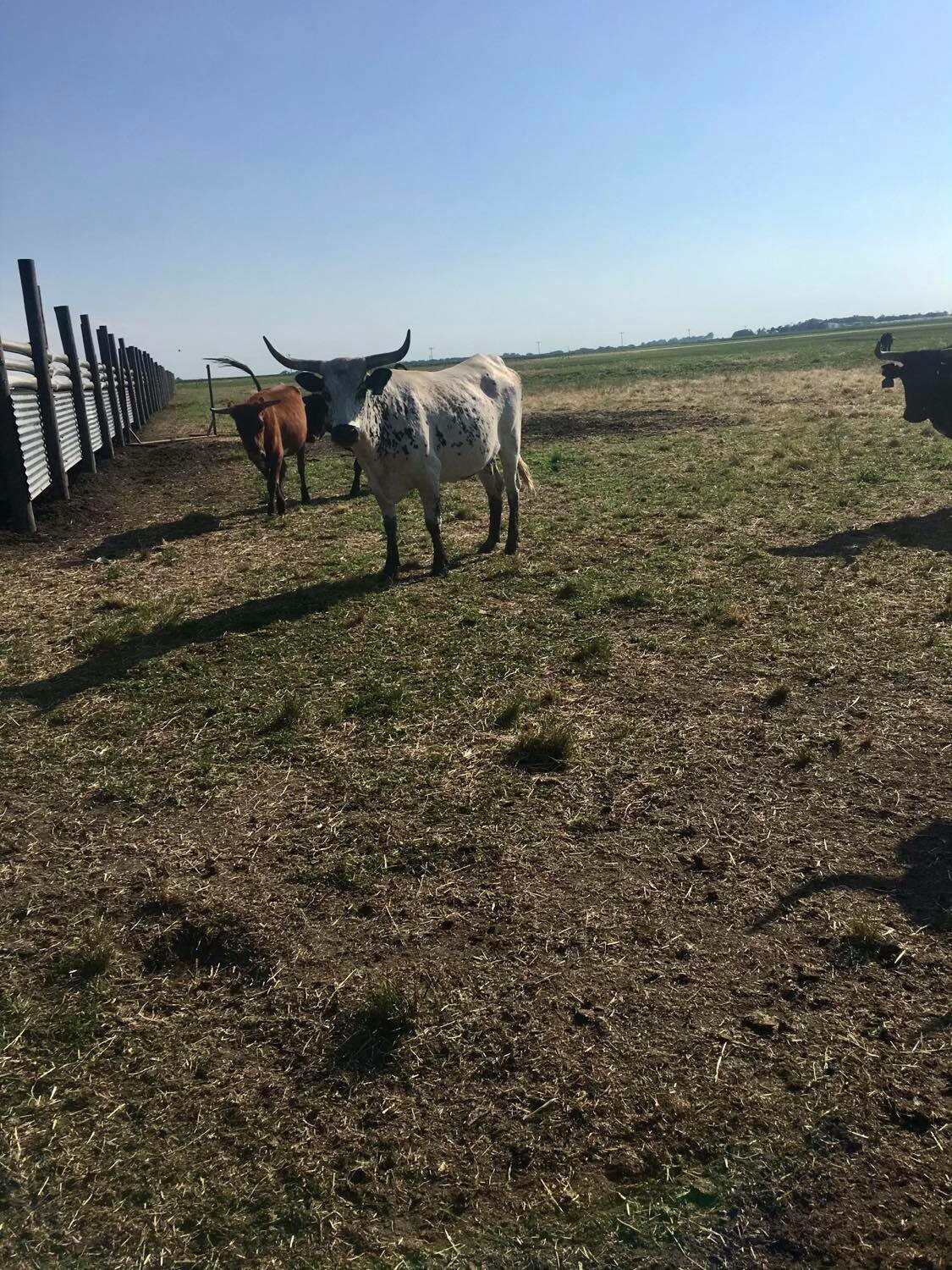
This post may contain affiliate links, which means that I may receive a commission if you make a purchase using these links, with NO additional cost to you.
Training livestock, cattle, sheep, pigs, goats, etc., for basic movement is actually fairly simple. There are a few things to consider keeping you safe and make the training simple for everyone.
First, safety. When working with any livestock it is best to wear closed toes shoes. The larger the animal, the more important your shoes are. When working with larger animals, like cows, you definitely want to invest in leather boots.
Next your biggest training tools. A bucket, some grain for starters, and repetition. Food is a very good motivator for animals. You will have to let them get their head in the bucket at least the first time, or pour the grain out for them, until they figure out the bucket means food. Once they make the connections, you can lead them about anywhere. You can also use a few rocks in a bucket in a pinch once they figure it out. Disclaimer this method works well with small groups. You get large groups of 20+ and it’s not the best method.
You can also train animals to move easily from pasture to pasture. Repetition is key here. The reward, food, is on the next side of the gate. When you move a large herd the same way every time, they quickly figure out what the ques are and often meet you at the gate.
Story time. Before I was at home with my kids, I worked with large herds of cattle, 100 was a small a group typically. Most of the time moving the group to the next pasture across the fence would be done with 1 person. We all moved them the same, with the same pattern, and call. When calves were in the group, we drove through the herd, from the gate, and made sure everyone was up. Hooked up the salt/mineral sled and slowly drove back through the herd calling for them. They quickly followed, knowing new grass was coming. By weaning even, the calves would come to a simple call, because they had been conditioned that new food was coming.
In summary, repetition is key when training animals. Their easy reward is food. Whatever you choose to use as your moving method, do it the same every time and they will quickly be moving without much effort.
As I've grown in my journey as an entrepreneur, mom, gardener, and livestock owner, I struggled to find a planner that met my needs and kept me organized. So I MADE MY OWN. You can take a look at it on the link blow and buy it on amazon below
Don't want the whole calendar part? I got you! I pulled the gardening and animal care pages out and put them in a book all their own.
Wanting a community to lean into? Join the FREE Helping Your Family Homestead for Food group! This community is for the Mommas, looking to stay home and raise their kids, but unsure how to keep everyone fed and make ends meet. I share tips from my journey from the office, to half the income and feeding my family from home, while maintaining good nourishing food. Tips include: gardening, bulk buying, caning,/preserving, livestock, homesteading, and home remedies. Your family is precious and this group is to help you gain the knowledge and tools to keep your family well and not reliant on outside professionals. Remedies and tips are easy and simple for the busy momma, time is precious after all, including pregnancy, birth, young kids, and illness. Trust your Momma gut again! This community offers the resources + community you need to help get started on your journey and prepare for whatever future you envision.
Starting to garden doesn't have to be hard! I gathered all the tips I've learned over my gardening learning curve and made them into a simple course to jump start your gardening your life.
Supporting Your Family Naturally From the Inside Out community!! This community is for the Mommas, looking to Support Your Family from Nature for Wellness. Tips range from nutrition, herbals, detoxing, natural cleaning, and essential oils. Basically all the things I’ve learned slowly over the past 5+ years if my journey. We have moved off Facebook, so to better serve our community and be able to discuss openly option for providing for your family in the best way possible.
Join the FREE Community
Join the FREE Community
I've had 3 very different pregnancies. After the first traumatic birth, I learned better and how to care for my body naturally and prevent common pregnancy and birth problems before they arise. This quick course will get you the tools you need to have a naturally healthy pregnancy, labor, and delivery. My first pregnancy I had a normal western medicine all the things pregnancy. My second? I flipped to completely natural, no medicine. Bonus: Preventing Preeclampsia Without the Aspirin & Healing from Birth Trauma
Click here to get the stories straight to your email:
For more on wellness tips click here:
For more on homesteading on your budget click here:
For more simple DIY updates click here:
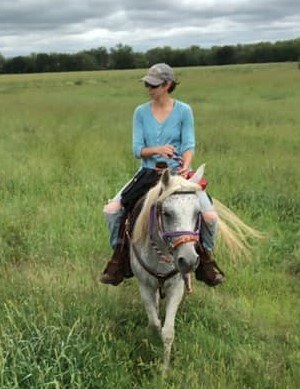
This post may contain affiliate links, which means that I may receive a commission if you make a purchase using these links, with NO additional cost to you.
Training horses is rewarding, but does need to be done with caution. Horses are large animals and need to be handled appropriately. Trained incorrectly and they can be dangerous. Trained correctly and they are remarkable partners. Below I’ll give you some tips to get you going.
First, establish respect on the ground. The basis of all training is respect. Basically, you’re establishing yourself as the dominant horse in the herd. You ask the horse to move, tell them to move, then make them move. Clinton Anderson, founder of Downunder Horsemanship, is very helpful at showing you the subtle cues your horse gives you in communication. You must make sure your horse respects your space. If they enter without permission, back them out.
When training, always start with groundwork and making sure your horse has good manners. This will make a good foundation for whatever discipline your horse will be doing. It is highly recommended, because of a horse’s size, you get professional help and direction. YouTube is a great source for visuals and there are many horse magazines that have helpful practice tips, such as Horse & Rider.
If you are beginner, I do not recommend starting with a colt. I know it seems fun to learn together, but habits that start early are hard to break. Find someone local to help you find a good beginner horse. Beginner horses are pretty set in their ways and can help you learn horsemanship and how to handle a horse.
There are a few basic ground rules to establish no matter what horse you bring home.
#1 No fighting when anyone with 2 legs is in the pen. This is one my mom’s horses had when we were growing up and my herd now has the same rules. Anyone caught ear pinning, biting, or kicking is immediately chased to the far corner and held there until they apologize (lower their head). This is important especially if you have small children. Horses are like magnets to kids, and don’t always understand to look out for horses’ behavior.
#2 Respect my space. No horse is allowed into my space without permission. Stand in a hula hoop and that is about the space you are looking at. This ensures no one is getting run over. With this in mind, as you work with your horse more, you will be able to back them out of your space with your body only. Your eyes and body language have great power when communicating with them.
Horses are truly remarkable animals, and learning to communicate with them opens a world of possibilities. The more time you spend with them, the more easily you will be able to communicate with them.
As I've grown in my journey as an entrepreneur, mom, gardener, and livestock owner, I struggled to find a planner that met my needs and kept me organized. So I MADE MY OWN. You can take a look at it on the link blow and buy it on amazon below
Don't want the whole calendar part? I got you! I pulled the gardening and animal care pages out and put them in a book all their own.
Wanting a community to lean into? Join the FREE Helping Your Family Homestead for Food group! This community is for the Mommas, looking to stay home and raise their kids, but unsure how to keep everyone fed and make ends meet. I share tips from my journey from the office, to half the income and feeding my family from home, while maintaining good nourishing food. Tips include: gardening, bulk buying, caning,/preserving, livestock, homesteading, and home remedies. Your family is precious and this group is to help you gain the knowledge and tools to keep your family well and not reliant on outside professionals. Remedies and tips are easy and simple for the busy momma, time is precious after all, including pregnancy, birth, young kids, and illness. Trust your Momma gut again! This community offers the resources + community you need to help get started on your journey and prepare for whatever future you envision.
Starting to garden doesn't have to be hard! I gathered all the tips I've learned over my gardening learning curve and made them into a simple course to jump start your gardening your life.
Supporting Your Family Naturally From the Inside Out community!! This community is for the Mommas, looking to Support Your Family from Nature for Wellness. Tips range from nutrition, herbals, detoxing, natural cleaning, and essential oils. Basically all the things I’ve learned slowly over the past 5+ years if my journey. We have moved off Facebook, so to better serve our community and be able to discuss openly option for providing for your family in the best way possible.
Join the FREE Community
Join the FREE Community
I've had 3 very different pregnancies. After the first traumatic birth, I learned better and how to care for my body naturally and prevent common pregnancy and birth problems before they arise. This quick course will get you the tools you need to have a naturally healthy pregnancy, labor, and delivery. My first pregnancy I had a normal western medicine all the things pregnancy. My second? I flipped to completely natural, no medicine. Bonus: Preventing Preeclampsia Without the Aspirin & Healing from Birth Trauma
Click here to get the stories straight to your email:
For more on wellness tips click here:
For more on homesteading on your budget click here:
For more simple DIY updates click here:
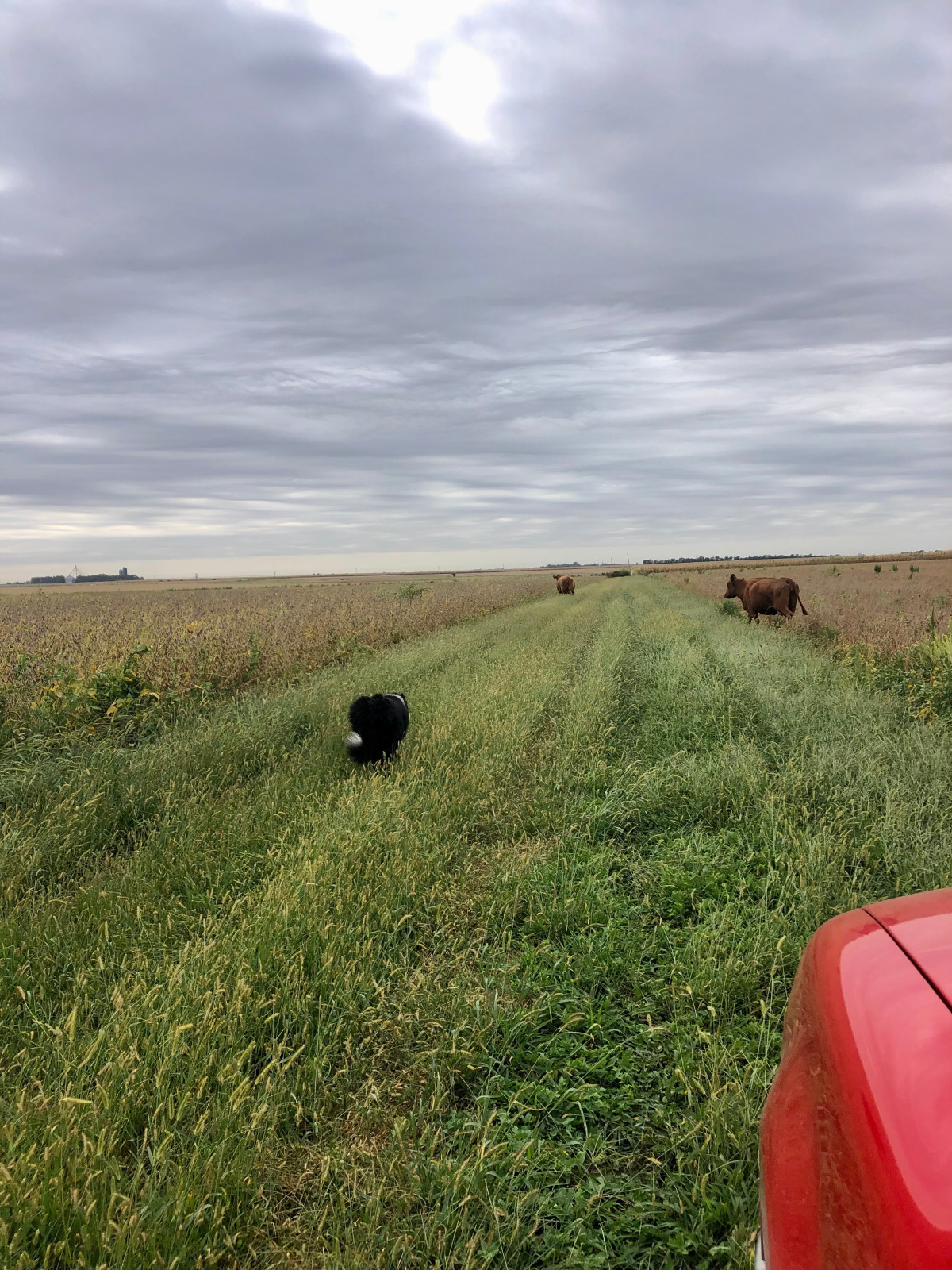
This post may contain affiliate links, which means that I may receive a commission if you make a purchase using these links, with NO additional cost to you.
No matter the dog you have, working or pet, they will need some training. Training is needed for your dog to have manners and not be knocking people, kids, and more over. Below I’ll describe the difference between basic obedience and working and tips for each. Obedience is needed for any job. Working dogs vary from guarding, herding, sporting, and more.
Every dog, no matter if they will be officially working, or simply hanging around, they need basic obedience. Basic obedience is walking on a leash without pulling, sitting, laydown, stay, and leave it. All of these are important for the safety of people and your dog. Walking easily on a leash makes it safe to walk in public and walks pleasant. “Sit”, helps to keep them from jumping on others. “Leave-it” keeps them from pulling on you, or chasing something that could be dangerous, like a car.
Most dogs are eager to please you, if you have established a relationship with them and they respect you. Treats can help establish the understanding of reward, for dogs who need more than just praise. You may have to help them into a sit or down the first time, make sure you praise your dog right after they do as you wish.
For working dogs, they will need a bit more training. Depending on what job your dog will be doing, what training they will need. For guard dogs, you will be able to train them. The biggest thing to teach them in addition to obedience, is to teach them their boundaries. In the beginning you will need to stake or pen them close to what they are to be guarding. Then you can begin to take them on perimeter walks. Depending on the size of the territory, you may need a fence collar to keep them in.
If you are looking at a herding dog, you may need some outside help to get started. Most good herding dogs have an innate ability to know what to do. But you will need to learn how to communicate with them and how to slow them down if needed. Basic communication between the dog and you should be directions (left and right), down, come, stay, and heel (walk with me).
Dogs are eager to please and easy to train. They are good at their jobs no matter what it is. Dogs make an excellent extra set of hands for work, or even companions. Basic obedience is the foundation of all training.
As I've grown in my journey as an entrepreneur, mom, gardener, and livestock owner, I struggled to find a planner that met my needs and kept me organized. So I MADE MY OWN. You can take a look at it on the link blow and buy it on amazon below
Don't want the whole calendar part? I got you! I pulled the gardening and animal care pages out and put them in a book all their own.
Wanting a community to lean into? Join the FREE Helping Your Family Homestead for Food group! This community is for the Mommas, looking to stay home and raise their kids, but unsure how to keep everyone fed and make ends meet. I share tips from my journey from the office, to half the income and feeding my family from home, while maintaining good nourishing food. Tips include: gardening, bulk buying, caning,/preserving, livestock, homesteading, and home remedies. Your family is precious and this group is to help you gain the knowledge and tools to keep your family well and not reliant on outside professionals. Remedies and tips are easy and simple for the busy momma, time is precious after all, including pregnancy, birth, young kids, and illness. Trust your Momma gut again! This community offers the resources + community you need to help get started on your journey and prepare for whatever future you envision.
Starting to garden doesn't have to be hard! I gathered all the tips I've learned over my gardening learning curve and made them into a simple course to jump start your gardening your life.
Supporting Your Family Naturally From the Inside Out community!! This community is for the Mommas, looking to Support Your Family from Nature for Wellness. Tips range from nutrition, herbals, detoxing, natural cleaning, and essential oils. Basically all the things I’ve learned slowly over the past 5+ years if my journey. We have moved off Facebook, so to better serve our community and be able to discuss openly option for providing for your family in the best way possible.
Join the FREE Community
Join the FREE Community
I've had 3 very different pregnancies. After the first traumatic birth, I learned better and how to care for my body naturally and prevent common pregnancy and birth problems before they arise. This quick course will get you the tools you need to have a naturally healthy pregnancy, labor, and delivery. My first pregnancy I had a normal western medicine all the things pregnancy. My second? I flipped to completely natural, no medicine. Bonus: Preventing Preeclampsia Without the Aspirin & Healing from Birth Trauma
Click here to get the stories straight to your email:
For more on wellness tips click here:
For more on homesteading on your budget click here:
For more simple DIY updates click here:
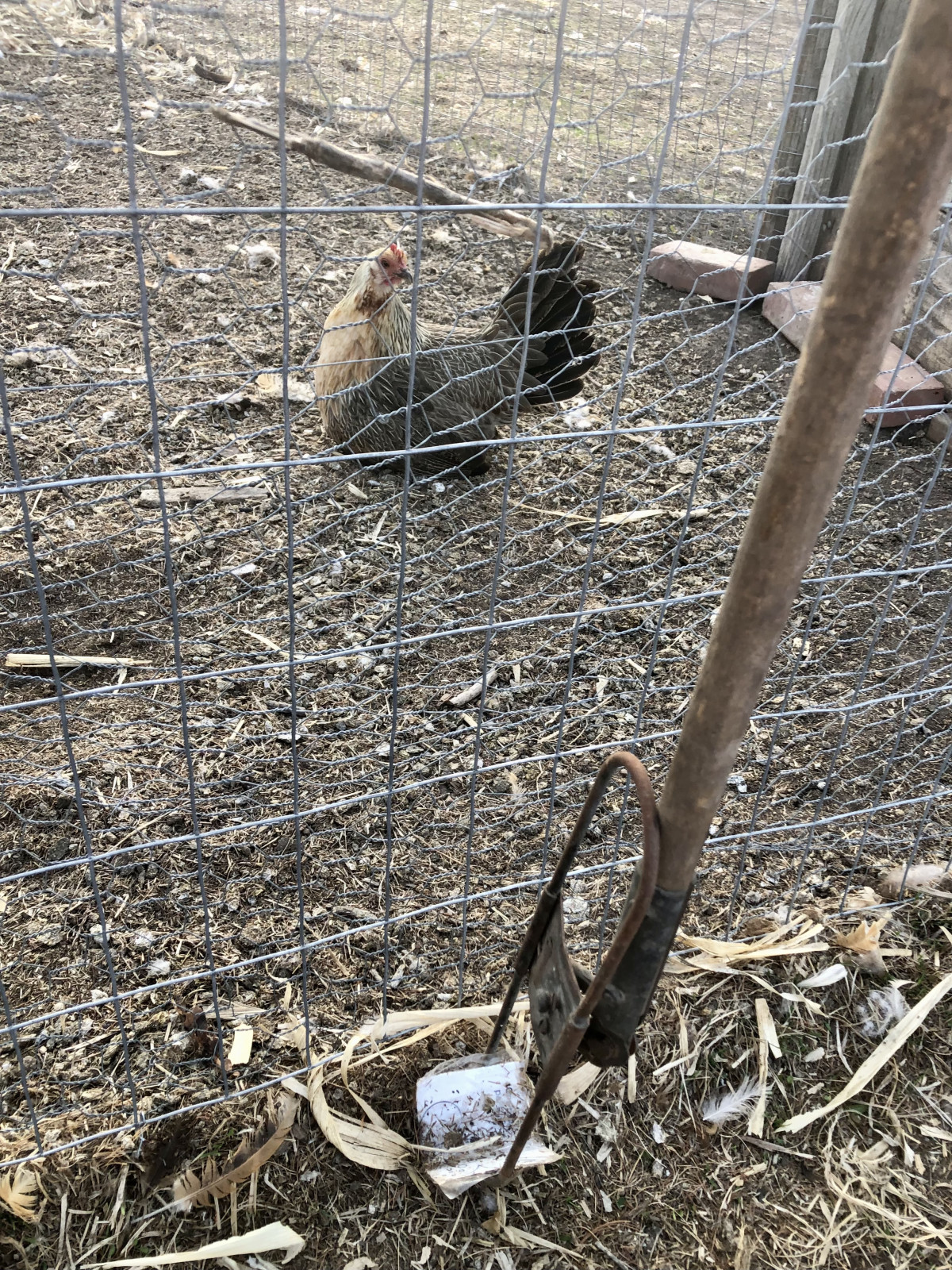
This post may contain affiliate links, which means that I may receive a commission if you make a purchase using these links, with NO additional cost to you.
The basics of a pen is to contain animals to a specific area for management or safety. This can give you a lot of freedom to design with resources you have to meet your and your animals’ needs. There are a few design differences to keep in mind for birds, or dogs.
First up the birds (chickens, turkey, guinea, ducks, geese, etc). If you are keeping birds locked in a run, you will need a predator proof fence. Chicken wire isn’t going to cut it. It is not strong enough to hold up the long term. Save yourself time and money and invest in welded wire. Bury 4-6 inches into the ground to keep predators from trying to dig in. You will need a fence at least 8 foot tall as well. If hawks are a problem, you’ll need some kind of overhead protection. That could be a physical fence top, or string wires across the top.
If you free range your flock, I highly recommend having a shed or night base for the birds to gather in that is protected. I lock my birds in at night, but I know people who don’t. The main thing is you will have to protect your flock somehow. I use a combination of geese and guardian dog. Our house has fields around it that in the summer, create a natural fence the birds don’t like to go into. The LGD knows his border and keeps the land predators pushed out, keeping the birds safe. The geese keep an eye on the sky and alert the LGD if there is an issue. It really is fun to watch them work together.
Mobil chicken tractors are also an option, but you have to have an open landscape for them work. In my home, I have too many trees for that to be a feasible option.
Now the farm dogs. This is probably the easiest. Once a farm dog knows his home base and his boundary, you really don’t need to keep them in a physical fence. When introducing a new dog or puppy to the farm, have a kennel or tie line to help them learn this is home. Then gradually let them out with supervised time, walks around the property. As they show themselves trustworthy, you can leave them free all the time. Keep the tie out handy for the times they do go too far, and you can tie them back up. For a time.
What about if you have a dog that just won’t stay home, or will not leave flocks/animals alone? In this case you will need some kind of fence or collar. Full disclosure. I have 2 cattle working dogs that will herd and terrorize the chickens non-stop. I have a pet safe wireless fence that keeps them in the front yard. The birds stay outside their fence, and everyone lives in peace (most of the time).
For a dog prone to wandering, I’d recommend a gps hunting collar. I had one for our LGD to keep him on the property, because we have such a small land base (3.4 acres). However, I must be within .5 miles to keep connection with his collar. The good news he’s most prone to wondering at night, so I keep the remote by my bed. I am looking at upgrading to a collar that connects to my phone. Currently, he is running without a collar and if he leaves, he is tied back up for a time.
Fence for bird flocks and farm dogs, doesn’t need to be complicated. It is important to keep everyone as safe as possible. A few tools and thinking through your landscape and you’ll have the best adaptable solution for you.
As I've grown in my journey as an entrepreneur, mom, gardener, and livestock owner, I struggled to find a planner that met my needs and kept me organized. So I MADE MY OWN. You can take a look at it on the link blow and buy it on amazon below
Don't want the whole calendar part? I got you! I pulled the gardening and animal care pages out and put them in a book all their own.
Wanting a community to lean into? Join the FREE Helping Your Family Homestead for Food group! This community is for the Mommas, looking to stay home and raise their kids, but unsure how to keep everyone fed and make ends meet. I share tips from my journey from the office, to half the income and feeding my family from home, while maintaining good nourishing food. Tips include: gardening, bulk buying, caning,/preserving, livestock, homesteading, and home remedies. Your family is precious and this group is to help you gain the knowledge and tools to keep your family well and not reliant on outside professionals. Remedies and tips are easy and simple for the busy momma, time is precious after all, including pregnancy, birth, young kids, and illness. Trust your Momma gut again! This community offers the resources + community you need to help get started on your journey and prepare for whatever future you envision.
Starting to garden doesn't have to be hard! I gathered all the tips I've learned over my gardening learning curve and made them into a simple course to jump start your gardening your life.
Supporting Your Family Naturally From the Inside Out community!! This community is for the Mommas, looking to Support Your Family from Nature for Wellness. Tips range from nutrition, herbals, detoxing, natural cleaning, and essential oils. Basically all the things I’ve learned slowly over the past 5+ years if my journey. We have moved off Facebook, so to better serve our community and be able to discuss openly option for providing for your family in the best way possible.
Join the FREE Community
Join the FREE Community
I've had 3 very different pregnancies. After the first traumatic birth, I learned better and how to care for my body naturally and prevent common pregnancy and birth problems before they arise. This quick course will get you the tools you need to have a naturally healthy pregnancy, labor, and delivery. My first pregnancy I had a normal western medicine all the things pregnancy. My second? I flipped to completely natural, no medicine. Bonus: Preventing Preeclampsia Without the Aspirin & Healing from Birth Trauma
Click here to get the stories straight to your email:
For more on wellness tips click here:
For more on homesteading on your budget click here:
For more simple DIY updates click here:

